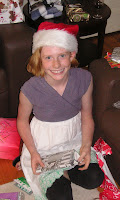- The death of a child always seems worse than the death of an adult, and to have so many children, together with their teachers, killed in one incident is tragic. It has raised the issue of greater control over the kind of weapons available in the US and I hope it is possible to get some limitation on this. It is not for Australians to give advice on this, though the talk back lines and other media have run hot, but we should be grateful that guns are not such an important part of the culture here. We should not overlook though, the continued violence to be found in our homes, which scars young lives and which, often fuelled by alcohol and drugs, is particularly prevalent at this time of year. As adults who care about children we must set a better example, work to stop bullying and to practise and teach peaceful dispute resolution.
- The recent death of Dame Elizabeth Murdoch at the grand old age of103, has drawn attention to the wonderful role she paid in supporting the Royal Children's Hospital, the arts and many other charities. While she was obviously a very wealthy woman, thanks to her husband and son's business acumen, she was public about much of her giving, not to gain personal glory but to set an example for us all to follow. In your gift and food buying this Christmas have you put aside extra for those in need?
- In an obituary for Tony Charlton, a well known event and sports commentator, much was made of his sporting knowledge, but also of the fact that he volunteered 5 days a week at the Alfred Hospital in Melbourne. Such voluntary work is another worthy example to follow.
- I'm very much a beginner in the blogging world, but note that this is the forty second that I have posted since March. It has been a learning experience, and sometimes I find it hard to think of topics, and sometimes the words just don't come. I have been amazed to see that I seem to have readers in such a variety of countries, and while I have been disappointed not to have generated more comments I hope that some of you may linger long enough to start some sort of discussion. I would really enjoy the feedback.
- Looking at past posts I have noted that the most popular posts have been those relating to the work of nannies, particularly saying goodbye to families; nurturing a love of nature and the dance of parenthood. I'm not sure if that represents a desire to see more on these subjects, or if they have been sufficiently covered....Let me know, please!
- I must thank my young models and their parents for allowing their photos to be used to illustrate these blogs. Sienna, Hazel, Fraser, Jeanie, Logan and Ally your participation is much appreciated, and I hope Santa has something lovely in his sack for you to enjoy.
The office of Susan Rogan Family Care will be closed from Monday, 24th December and will reopen on Wednesday, 2nd January.
From me, Susan, and everyone at Susan Rogan Family Care have a happy and safe Christmas and a wonderful holiday.




















